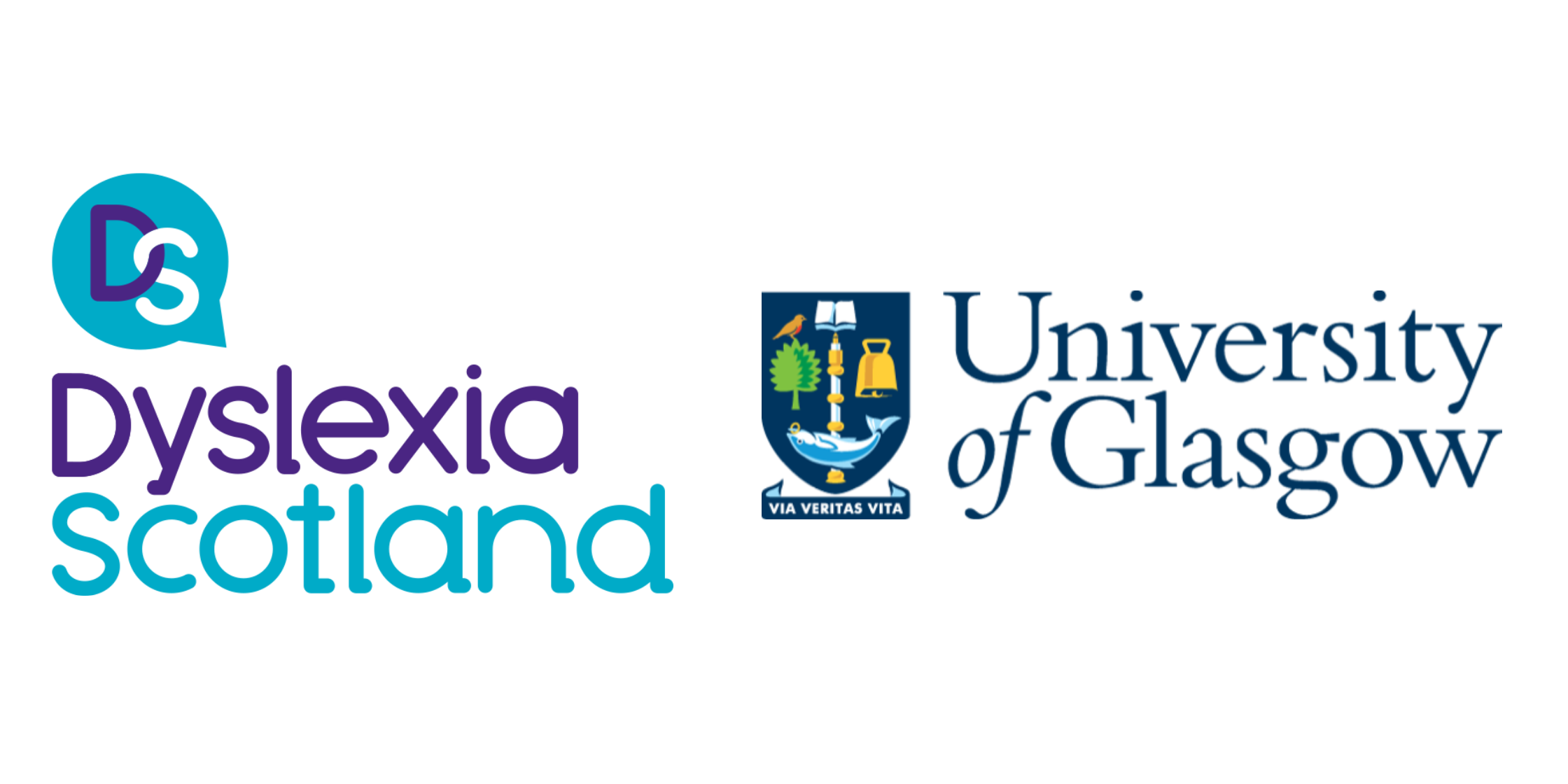
Dyslexia-friendly Scotland survey
Dyslexia Scotland and the University of Glasgow are undertaking Scotland’s biggest ever survey of dyslexic adults.
If you are dyslexic (or think you are), aged 16 or older, we want to get your response. If you are not dyslexic, please do your part by encouraging or supporting those you know with dyslexia to do the survey.
The aim of the survey is to identify the areas of Scottish society that could be more inclusive. This important exercise is part of Dyslexia Scotland’s strategy to make Scotland a fully dyslexia-friendly country that values and supports its dyslexic population.
Taking part and giving your answers is a critical first step in making Scotland a better place for people with dyslexia to live, learn, work, play and grow up in.
Frequently asked questions
Who is the survey for?
People with dyslexia, living, working or studying in Scotland, aged 16 or over.
I’m not dyslexic – can I fill it in for someone else?
We understand that this could be challenging for people with dyslexia to do alone. You can fill it in on someone’s behalf if you have the express consent of the person and you provide the answers they tell you.
I don’t have a formal identification of dyslexia, can I still take part?
Yes – you don’t need a formal assessment. If you think you might be dyslexic, we want to hear from you too.
What is the survey for?
We want to know about dyslexic people’s experiences of living, learning and working in Scotland so that we can
- Understand the problems people with dyslexia face
- Help make improvements in Scotland
What will you ask me about?
- Your age, council area, ethnic origin and sexual orientation (these are help us make sure we are getting a range of responses.)
- Your education
- Your career and income
- Mental health
- Why you think, or how you found out, that you are dyslexic
- Experiences of bullying and discrimination
- Digital technology
- Your views on dyslexia in the media
How long will it take me?
Give yourself at least 30 minutes to do this survey, preferably longer. There are a lot of questions and you may need time to read and process each one. It’s important that you give yourself the time and space to give the answers that reflect your experiences. There are spaces to tell us more about your experiences, so you may want to take time to give as much information as you need.
You can take breaks and return to the survey, so long as you access the link on the same device, it should let you pick up where you left off.
Do I have to answer all of the questions?
The more questions you answer, the more it helps us. If you do exit the survey before you’ve reached the final question, your answers will be logged. Try to complete it, if you can.
Will my response be anonymous?
Yes, responses are anonymous. You can provide us with your contact details if you are happy for us to follow up on your answers but this is optional. You can still complete the survey without giving us your contact details. We will not publish anyone’s name or personal information. There is the option to be a media case study, but only if you agree to it.
Can I get help to complete the survey?
Yes, you can ask someone you trust to type in your answers. You can also contact Dyslexia Scotland and arrange a time to give your answers over the phone.
If you have any difficulties accessing the survey or completing it, please contact [email protected] or leave a message for Katie on 01786 446650 and ask for help to fill the survey in. We can arrange a telephone interview or online interview where you can tell us your answers.
What do I get for taking part?
If you enter the prize draw, you get a chance to win a prize. Three lucky entrants will win a dyslexia goody bag and one lucky entrant will win a £50 Love to Shop voucher. You also get a warm glow from knowing that you have done something important that wil help make a difference, now and in the future.
When does the survey close?
The planned closing date of the survey is 12 May 2024.
How will you use the information I provide?
The research is being carried out in line with the University of Glasgow’s Privacy Policy. Dyslexia Scotland will publish a report based on the findings from the survey. The information will be anonymised, unless you give your express permission to be a named case study.
Troubleshooting:
I’m having problems doing the survey:
Please reach out to a trusted contact or to Katie at Dyslexia Scotland if you are having problems taking the survey.
The sliders aren’t working with my assistive technology:
The sliders may not work with some assistive technology. If you need assistance to answer these (or other questions), please seek help from a trusted contact or Dyslexia Scotland. The survey contact is [email protected].
